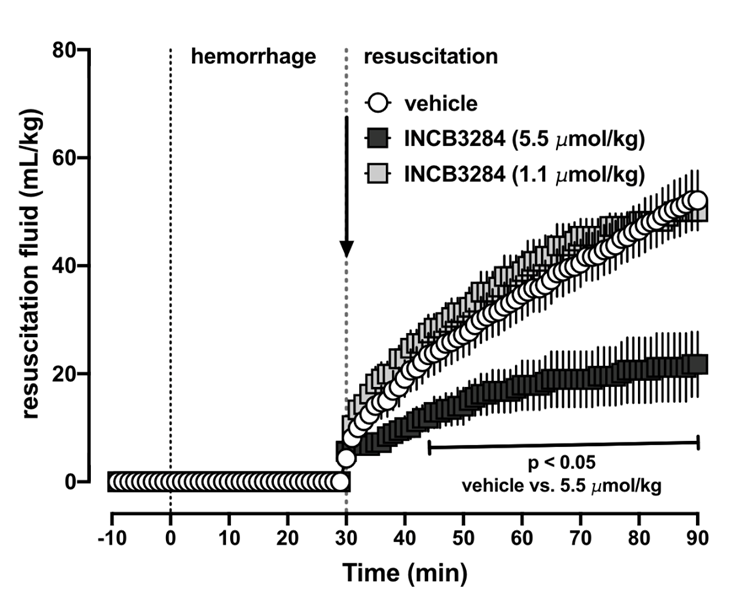Advantages:
- Reduces amount of fluid required for resuscitation
- Reduces risk of complications
- New direction in critical care
Summary:
Our research focuses on improving the treatment of critically ill patients, especially those undergoing major surgery or suffering from conditions like severe burns, trauma, hemorrhage, or sepsis. Adequate fluid resuscitation is crucial in such cases to restore intravascular volume and support organ function. However, excessive fluid resuscitation can lead to complications like fluid overload, edema, and increased morbidity and mortality. Our researchers propose a novel approach to address these challenges by using chemokine receptor antagonists.
Chemokines are signaling molecules that play a role in immune responses and inflammation. The researchers observed that a specific chemokine, CCL2, is elevated in hypotensive trauma patients and can differentiate survivors from non-survivors. Based on this observation, they investigated whether blocking the natural receptors of CCL2, namely CCR2, CCR3, and CCR5, could stabilize blood pressure and reduce fluid requirements during fluid resuscitation from severe hemorrhagic shock in rats. The findings suggest that blocking certain chemokine receptors can help stabilize blood pressure and reduce the amount of fluid required during resuscitation. This approach could potentially minimize the need for aggressive fluid resuscitation and decrease the reliance on vasopressors, ultimately reducing the associated risks and complications.

INCB3284 stabilizes hemodynamics and reduces fluid requirements during resuscitation from hemorrhagic shock in rats.
Desired Partnerships:
- License
- Sponsored Research
- Co-Development